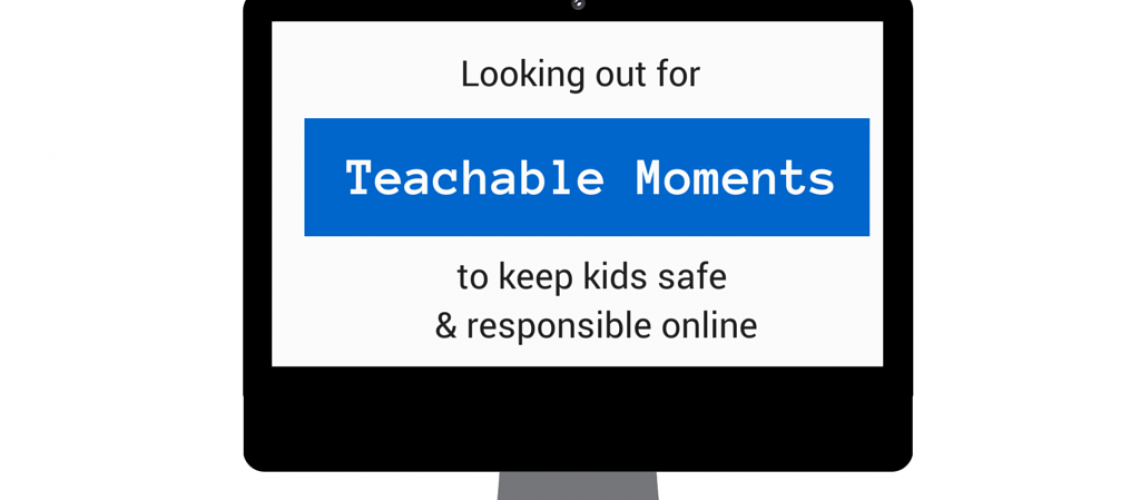Using teachable moments is one of the most effective strategies I have used to help keep kids safe and responsible online and help get them thinking about consequences to their behaviours and thinking.
We know most kids don’t respond well to lecturing. They tend to hear the first line, a few mumbles in the middle and maybe a couple of random words in between. So when we want to get a message across to our kids we need to come up with other ways. Ways that don’t result in subconscious head nodding, eye rolling or ‘yes mum…. you told me that before’.
What do I do instead? I am constantly on the lookout for ‘teachable moments’. Those impromptu examples of human frailty that can be used as valuable lessons about what ‘not to do’. And I look for the ones that my kids will relate to.
For example. When reading the paper or watching the news I will harness the unfortunate outcomes of people stuffing up online to bring the attention to my kids. “So that AFL footballer was just delisted because he posted a stupid photo on Twitter?” Or even better I ask them to tell me about it. “So what happened to that footballer who lost his contract?” I get them to explain that it was because of something inappropriate he posted online. I then get them to extrapolate further. “So all those years he spent training, all those dreams he had of playing sport at an elite level, are all for nothing?” “All that hard work, all those aspirations, all over because of one stupid photo?”.
We don’t have to look far for these teachable moments. Every day politicians are losing office, celebrities are being embarrassed, sports starts are losing lucrative sponsorship deals….all over their blighted digital footprint.
Sometimes it is also about looking at their own or your own social network feeds. Look at the mistakes others have made or the way they being perceived online. Look at the aggressive way people respond to difference of opinion. Look at when kids have given out too much information and how they have been exposed, embarrassed, hurt, isolated or rejected. Talk about the smaller mistakes they may be making and give them an opportunity to see they can help prevent the bigger ones in the future.
So rather than sitting your kids down and saying “Righto kids, now we are going to talk about sexting, or respecting yourself and others online, or online safety”, grab these teachable moments to catch them at the pass, spike some interest and use something other than lectures, nags or pleads.
It all helps to add to the conversation. The ongoing, changing conversation that must be a part of the way we approach keeping our kids safe and responsible online. Let them know you understand, be relatable and make it mean something to them and their immediate understandings.
Have you used any teachable moments lately? Have a look around, you won’t need to look very far.


This Post Has 7 Comments
What a great idea, Martine. It’s really important that kids don’t feel lectured because it doesn’t matter how important or accurate the information is, they just don’t receive it as well as they could.
It is unfortunate that there are so many examples for our kids to learn from, but at least they can be turned to our advantage and hopefully help our own kids avoid similar situations in their own lives.
Thanks Nathan, yes it is certainly unfortunate that there are so many examples, and hopefully with time they will become less and less as we become accustomed to this way of living!
Thank you so much for sharing this, Martine. Although my son is just shy of 3, I think about this all the time and this is definitely an approach I will be using.
Thanks Eva, and even at 3 I am sure you will soon start to see examples of ‘teachable moments’ going on all around him.
I like this method of practically teaching kids. I try to do this with my kids everyday – they need to understand the real world implications of decisions and showing them through real world examples is a pretty effective way to do this.
Thanks Kirsty, and there are certainly examples of teachable moments for many aspects of life that can help our kids learn import an lessons.
Pingback: Back to school with BYOD
Comments are closed.